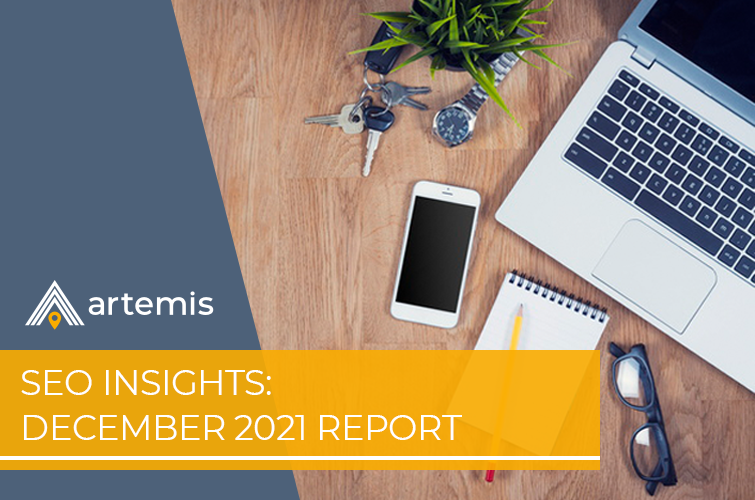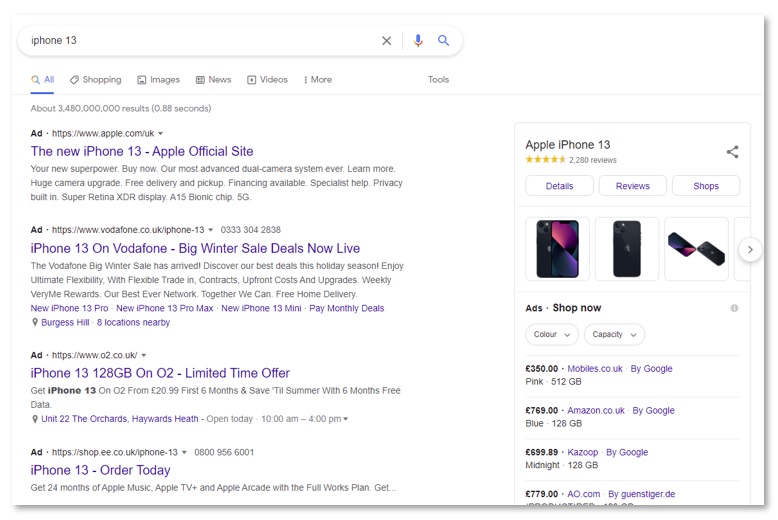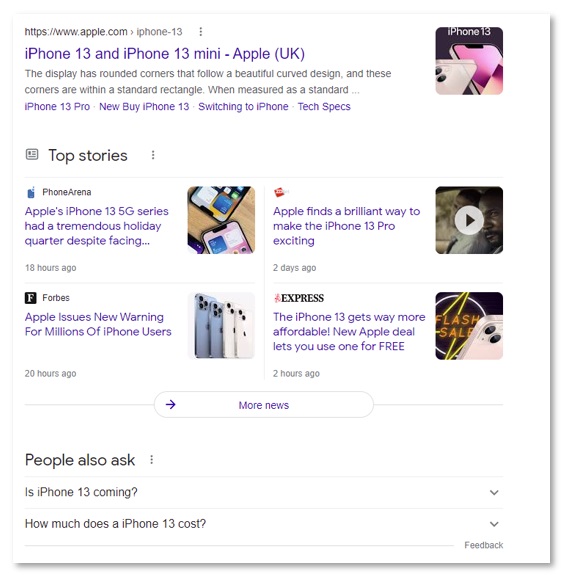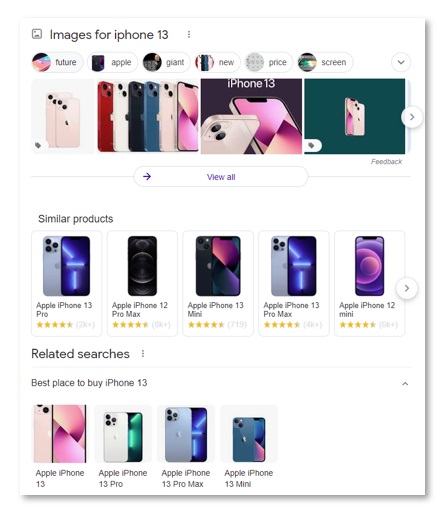SEO Insights – December 2021 Report

2021 proved to be a very busy year in search. Whilst most businesses were adapting to a new way of working in a pandemic world, Google released a plethora of algorithm updates, several of which were quite significant in terms of their impact on the search results.
Google releases minor updates on a daily basis, but the larger more impactful ones are the ones that can really change the visibility of a website in the search results. They can significantly impact the traffic, leads and sales generated for a business through organic search.
The Updates
In 2021 alone there were some very major updates:
- 3 Core updates
- 2 Product Review updates
- 3 Link Spam updates
- Page Experience update
- Google Local update
- Passage Indexing update
- Title Tag update
With these and the hundreds of minor updates, data revealed that 2021 was the most volatile year in the search results ever!
What’s been most interesting to observe is how the results have changed quite significantly for different types of searches. Websites have appeared in high ranking positions where previously they would not have been seen as competitors for those search terms.
Although all of Google’s updates are important and targeted, the ones that really change the results are the Core updates. These are designed to update the fundamental ranking algorithms to improve the accuracy and relevancy of the search results.
Relevancy
How does a search engine know what your intention is behind a search query? Do you want to buy something, find out more information about it or maybe you want to see some images of it? Without having some idea of the intent behind the search it won’t know what’s likely going to be the most relevant results that you want to see.
Whereas search engines have made huge strides in better understanding intent, especially through the application of AI, they ultimately don’t really know what you are after. They can only guess, albeit, probably quite a good guess.
What we have increasingly witnessed during 2021 was the expansion of the search results page. Long gone are the days of 10 links; the results now are designed to cover all possible intentions behind a search. And it’s getting a little bit messy!
Let’s take an example of a search for “iphone 13”. Here is what the search results contain today.
First we see ads at the top and shopping results and reviews on the right:

Then we get the official page from Apple, some news items and then a “people also ask” section:

This quite clearly shows that the intent behind this search query is not clear. Ignoring the ads, initially Google is possibly thinking that users are looking for the latest information about the iPhone 13, hence the official website, the news section and then “People also ask”.
The rest of the main results are a mixture of shopping and information results. In the screenshot below the shopping results are the ones with the thumbnail images to the right, the others are information/news pages:

Again, the intent is not clear so the options are a combination of informational and shopping results. If you make it all the way to the bottom of the search page then you still get the option to check out images, similar products and related searches:

There is still more if you scroll further down those search results but I think we get the picture. There is a lot going on here:
- Ads
- Official website
- Reviews
- Products
- News
- Information
- Images
- Other searches
If we go back to the original question: “How does a search engine know what your intention is behind a search query?” it seems that in most cases it really doesn’t know and so the solution is to present the user with an increasing number of options to choose from.
This behaviour was previously known as “Universal Search” although the term is not so used in the SEO industry today. In fact, Universal Search was first released back in 2007, although today it is far more sophisticated and possibly overwhelming for users.
What can we expect in 2022?
As Google continues to focus on improving the relevancy of the search results, it will also learn through time which elements users interact with on these busy search results pages. As it learns then the results will continue to evolve. It will get better and better at understanding the intent behind a search query and even more so if it is keeping a track of your search behaviour and history.
We can definitely expect an even more volatile 2022. It’s inevitable. AI in search is still in its infancy. As it continues to learn and better understand users’ needs, the search results will keep evolving, often quite significantly and potentially faster.
What these updates in 2021 has taught us is that you can never take a ranking position for granted. Protecting a long-held ranking position is one thing but if Google changes what it sees as the intent behind that search query, your page may no longer be relevant enough to continue ranking for it.
We’ve seen this repeatedly in the search results in 2021 as well as the increasing importance of ranking factors which previously were maybe seen as “very low impact” signals.
SEO which focuses just on the traditional “content, metas and links” will likely fail in 2022 and going forward. There are hundreds of signals that determine rankings and the results for even small variances in a search query can be quite different.
It’s very common these days to find sites ranking high in the search results which “don’t make sense”. They don’t have a strong link profile, they may not seemingly have the best content and they may not even be well optimised. These are great examples to study to understand which other signals Google is using to rank websites for the search query.
Relevance is the key focus for 2022. Relevance at the query level, not the subject level. We may not agree with what Google is ranking for a given search query but our job as SEOs is to ensure we give Google the greatest reason to rank our clients’ sites above all others, regardless of what form that may take.
Here at Artemis we spend a considerable amount of our time and resources in R&D to ensure we are always at the forefront of search and where it’s heading.
In 2022 we’ll be working with our clients to ensure that they continue to be the most relevant authorities in their industries and locations.
Let’s go!

